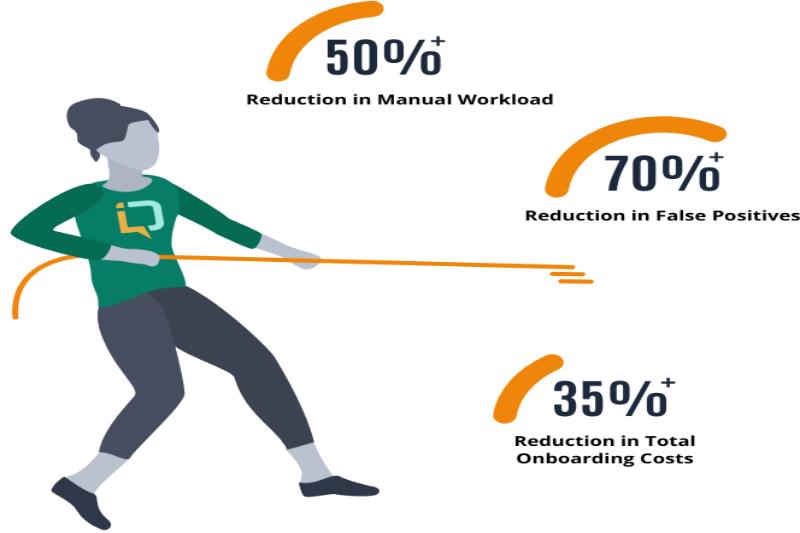
Your Bank’s First Line of Defense: PEP Screening
- Business
- November 1, 2023
PEP refers to Politically Exposed Person, a term that is used to denote individuals who are or have been entrusted with prominent public functions. What makes a person politically exposed is not just their position or role, but also their influence. Screening, in this context, refers to the processes by which banks and other financial institutions verify the identity of their clients and assess potential risks of illegal intentions for the business relationship. The PEP screening process is an integral part of robust Know Your Customer (KYC) protocols, aimed at preventing money laundering or terrorist financing.
The banking sector has increasingly become a target for financial crimes such as corruption, money laundering, and terrorism financing. Amid this, PEP screening has emerged as a vital tool for ensuring the integrity and safety of financial systems worldwide. It enables banks to assess the potential risk associated with providing services to certain individuals, making it a cornerstone of prudent banking operations. Moreover, regulatory bodies around the world demand adherence to specific guidelines concerning PEPs, making PEP screening not just helpful, but mandatory in modern banking.
Decoding PEP Screening
Politically Exposed Persons (PEPs), as defined by the Financial Action Task Force (FATF), are individuals who are or have been entrusted with a prominent public function. As such, they potentially have more opportunities to acquire assets through unlawful means, hence posing a higher risk for money laundering, corruption, and crime. The concept of PEP is not limited to the sphere of politics – a PEP could be a high-level official in the judicial or military sector, a senior executive of a state-owned corporation or even a close associate of such individuals.
PEPs can be classified into three main categories: Domestic PEPs, Foreign PEPs, and International Organisation PEPs. Domestic PEPs hold prominent public functions in their home country. Foreign PEPs hold significant public roles in a foreign country. International Organisation PEPs are persons who have a high-level position in an international organization. Understanding these categories while conducting PEP screening, as it helps in assessing the level of risk associated with each type, which further aids in decision-making.
The screening for PEPs is a part of risk management prioritized in modern banking. It is a preventive measure taken to avoid reputational, operational, legal and concentration risks that banks might face as a consequence of inadvertently maintaining relationships with customers involved in unlawful activities. In addition to this, many jurisdictions have laws requiring financial institutions to conduct these screenings, thereby ensuring their critical role in global financial security.
The Functionality of PEP Screening in Banking
PEP screening in banking typically begins by identifying whether a potential client or the existing one is a PEP. This identification procedure might depend on a person’s current or past prominent role, their families, and close associates. Upon establishing the person as a PEP, the process proceeds to risk-assessment. The banks analyze various factors such as the country of establishment, position held, and understanding of the potential risk the PEP’s funds could have been accessed illegitimately. Following recognition and risk analysis, the bank decides whether to establish or continue a business relationship, often seeking approval from senior management. Enhanced monitoring is then deployed if the business relationship prevails, keeping tabs on the PEP’s transactions to detect any suspicious activities.
Impact and Correlation of PEP Screening in Safe Banking
Failure to conduct effective PEP screening could expose banks to significant risk. This may result in unanticipated legal and reputational damages as banks could unknowingly facilitate financial crimes leading to costly legal ramifications and damages to the bank’s reputation. Failing to adhere to regulatory requirements for PEP screening could also attract penalties, including severe fines and sanctions. There is a direct correlation between PEP screening and safe banking as an effective PEP screening program helps the banks to detect and monitor high-risk customers. This ensures that the bank is not used as a medium for money laundering or terrorist financing, fostering the overall safety and integrity of the banking ecosystem.
The Financial Risks Brought by PEPs in Banking
Dealing with PEPs leads to a heightened risk of involvement in potential money laundering, corruption, or other financial crimes due to the power and influence typically associated with their positions. These risks can have profound financial implications on the banks, such as significant monetary fines and penalties imposed by regulatory bodies. Additionally, a bank’s inadvertent association with a PEP implicated in corruption or other illegal activities can lead to severe damage to the bank’s reputation, which could indirectly pose considerable business and financial risk. A tarnished reputation can lead to the loss of customers, investors and partnerships, which translates into financial loss.
PEP Screening: A Barrier Against Risks
PEP Screening acts as the first line of defense for banks against potentially harmful associations with PEPs. This procedure enables banks to identify the individuals categorized as PEPs and assess the associated risk factors. Through continuous monitoring and due diligence, banks can closely track the transactions of identified PEPs to detect any suspicious activity timely. Therefore, this screening process makes it harder for corruption and money laundering to go unnoticed and contributes to ensuring the overall soundness and integrity of the banking system. PEP screening, therefore, is not a choice, but a necessity in modern banking.
PEP screening enhances the transparency, integrity, and safe functioning of modern banking. It serves as a necessary tool for identifying and mitigating potential financial risks, thus preventing financial crimes like money laundering and terrorism financing. It is encouraged that all banking institutions adhere to a rigorous PEP screening process, ensuring a more secure financial environment globally.